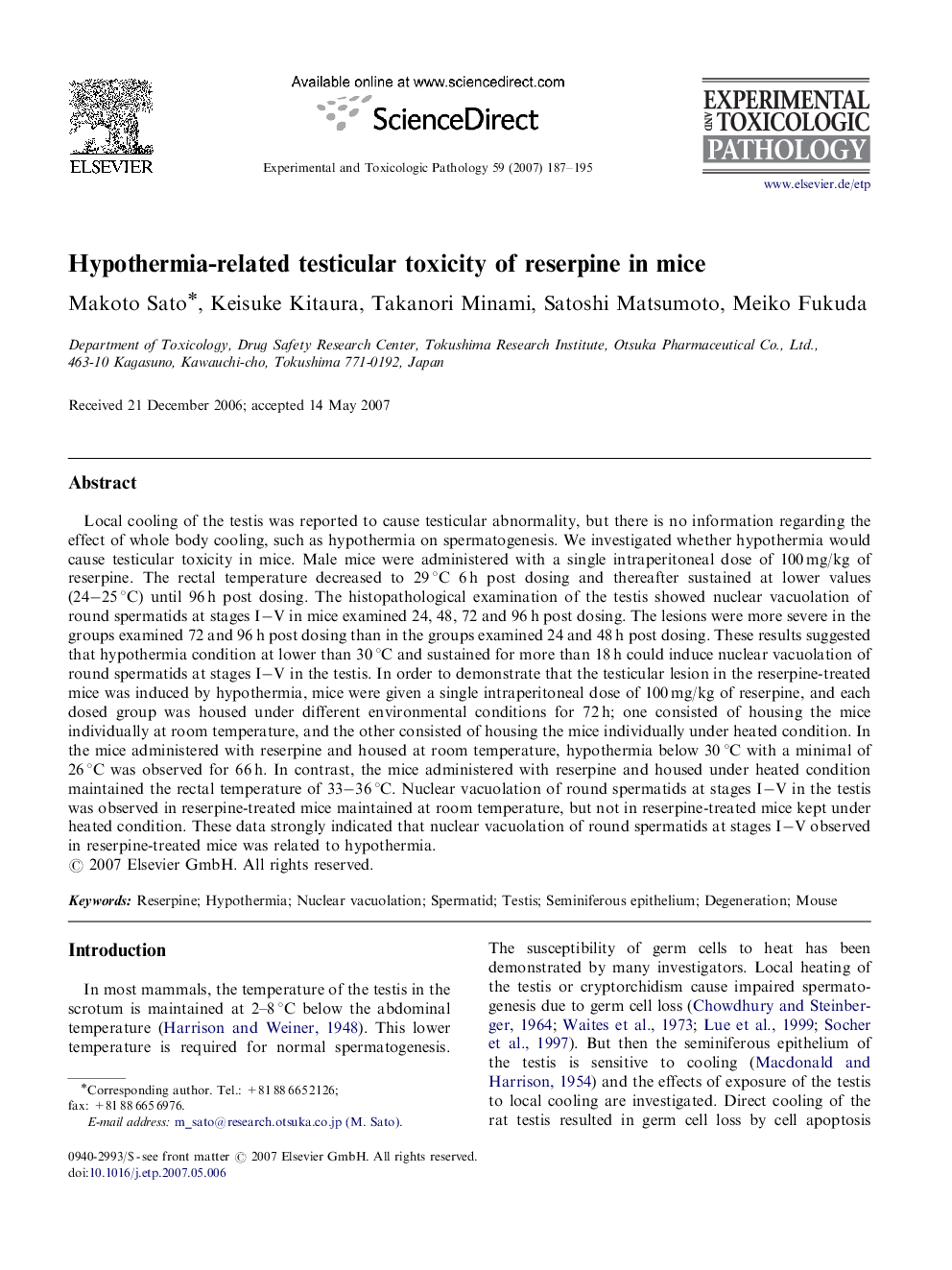| Article ID | Journal | Published Year | Pages | File Type |
|---|---|---|---|---|
| 2499891 | Experimental and Toxicologic Pathology | 2007 | 9 Pages |
Local cooling of the testis was reported to cause testicular abnormality, but there is no information regarding the effect of whole body cooling, such as hypothermia on spermatogenesis. We investigated whether hypothermia would cause testicular toxicity in mice. Male mice were administered with a single intraperitoneal dose of 100 mg/kg of reserpine. The rectal temperature decreased to 29 °C 6 h post dosing and thereafter sustained at lower values (24−25 °C) until 96 h post dosing. The histopathological examination of the testis showed nuclear vacuolation of round spermatids at stages I−V in mice examined 24, 48, 72 and 96 h post dosing. The lesions were more severe in the groups examined 72 and 96 h post dosing than in the groups examined 24 and 48 h post dosing. These results suggested that hypothermia condition at lower than 30 °C and sustained for more than 18 h could induce nuclear vacuolation of round spermatids at stages I−V in the testis. In order to demonstrate that the testicular lesion in the reserpine-treated mice was induced by hypothermia, mice were given a single intraperitoneal dose of 100 mg/kg of reserpine, and each dosed group was housed under different environmental conditions for 72 h; one consisted of housing the mice individually at room temperature, and the other consisted of housing the mice individually under heated condition. In the mice administered with reserpine and housed at room temperature, hypothermia below 30 °C with a minimal of 26 °C was observed for 66 h. In contrast, the mice administered with reserpine and housed under heated condition maintained the rectal temperature of 33−36 °C. Nuclear vacuolation of round spermatids at stages I−V in the testis was observed in reserpine-treated mice maintained at room temperature, but not in reserpine-treated mice kept under heated condition. These data strongly indicated that nuclear vacuolation of round spermatids at stages I−V observed in reserpine-treated mice was related to hypothermia.
